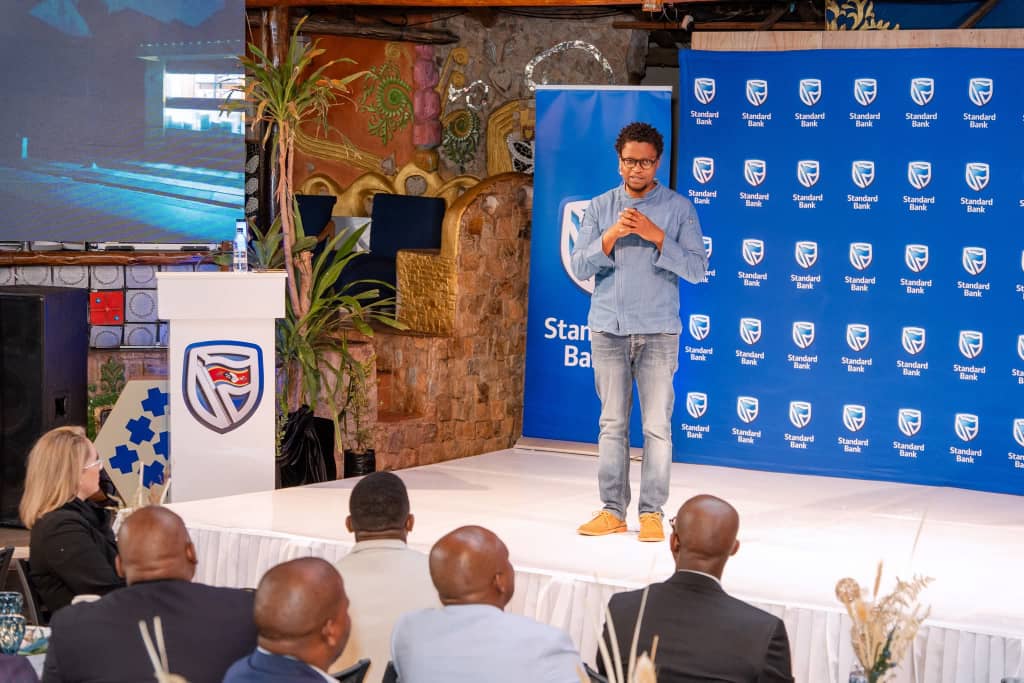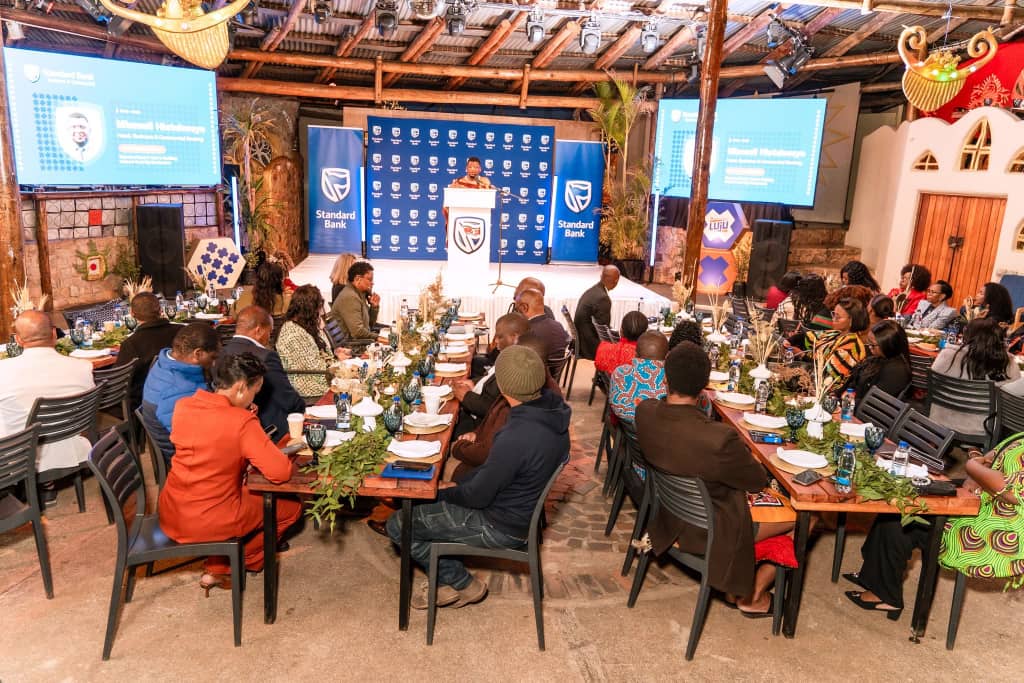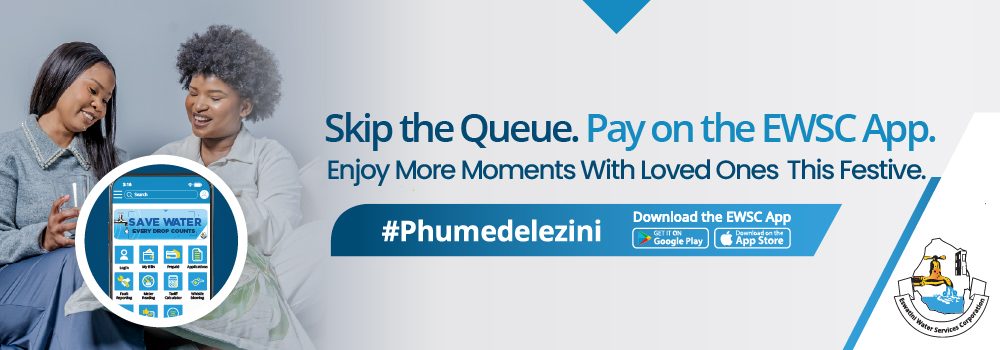
Entrepreneurs should forget about perfection and start. That was the core message delivered by entrepreneur, author, and innovation advocate Miles Kubheka during his keynote address at the Grow Beyond Borders SME Seminar 2025, held at House on Fire in Malkerns.
The event was hosted by Standard Bank Eswatini in collaboration with MasterCard.
Kubheka urged entrepreneurs to move away from perfectionism and adopt a mindset of bold, iterative innovation. The packed room nodded, clapped, and laughed in agreement as Kubheka, best known for launching a restaurant brand inspired by the fictional “Vuyo” from a South African TV ad, shared his lessons from the trenches of entrepreneurship.
“If you wait for perfect, you’ll never launch,” he said. “I started my business with just one product—the boerewors roll with chakalaka, based on my mom’s recipe. It wasn’t perfect. But it was enough.”
This “75% rule” formed the foundation of his call to action for EmaSwati entrepreneurs. The idea is simple: don’t delay your business idea with endless research, product development, or planning. Instead, take action, start where you are, and improve as you go.
Kubheka, who has worked at Microsoft and later pivoted into the hospitality sector, said the software industry’s model of launching updates and patches offers a valuable lesson for entrepreneurs across sectors. “At Microsoft, we shipped products that were not perfect. We updated them later. In business, you do the same: get feedback from your customers and improve with every iteration.”
He shared how he used this approach to improve his food business. “I reinvested the profits from my top-selling products and improved the ones that weren’t doing well. You don’t need a million rand or the latest kitchen equipment to start innovating.
You need to listen, learn, and tweak as you go.”
Kubheka wasn’t just offering tactical business advice; he was challenging a national mindset.
“We don’t do epic things because of fear. And most of that fear is inherited. We’re told we need more, we need to wait, and we’re not good enough. But the truth is, you already have what you need to start.”
His address also touched on empowerment, leadership, and why businesses must cultivate a culture of trust and creativity.
“The person closest to the problem is often the best placed to solve it. That’s why I empower my team to innovate without needing my permission,” he said. “I once got a call from my food truck guy; he told me a customer asked for a vegetarian option, and he invented one on the spot. I didn’t get upset. I celebrated that. That’s ownership.”

Kubheka challenged businesses to stop building systems that make people wait for approval and instead create platforms where team members can be part of shaping solutions.
“Don’t take notes, take action,” he said.
His words especially resonated with young people in the room, many of whom are navigating a tough economy and looking for ways to build sustainable livelihoods with limited resources.
“You don’t need to be 100% ready to start a 100% successful journey. Launch your product even if it’s 75% or 80% ready,” he concluded.


